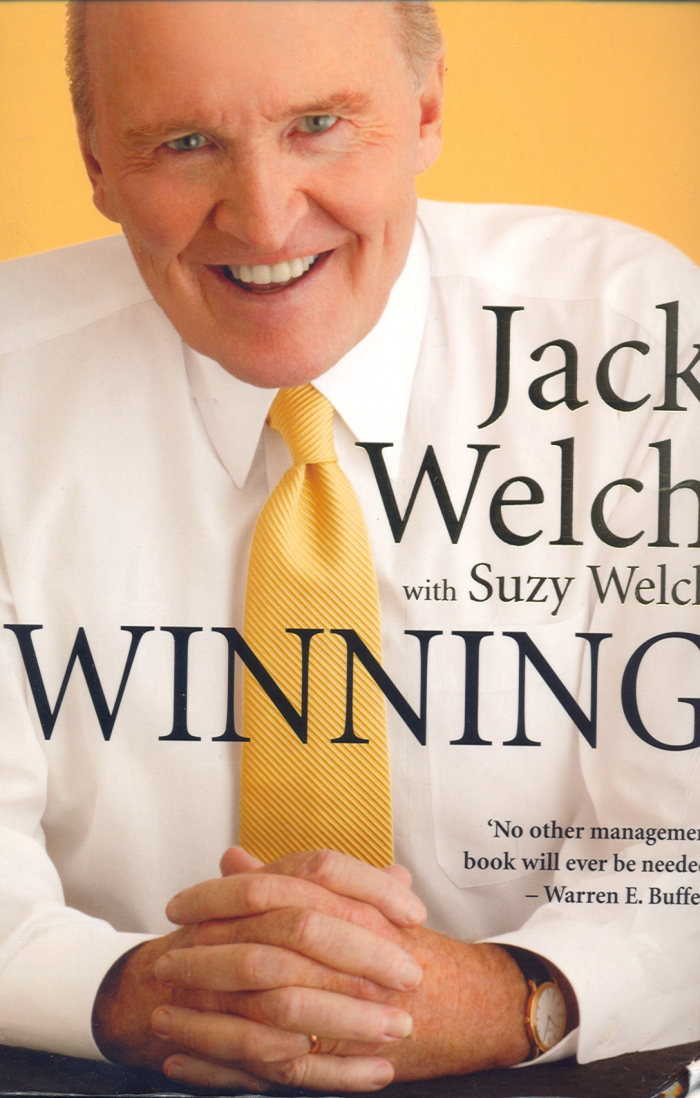
If you are looking for a formula for success in business, you need look no further than Jack Welch's book titled simply as Winning. Divided up into six broad sections, Winning gives a blow-by-blow account of how to succeed in business. Besides the introduction, the other sections are: underneath it all; your company; your competition; your career; and tying up loose ends. Under "Underneath It All", Welch discusses mission and values, stating .the distinction between mission and values; candour, which he considers to be the biggest dirty secret in business; differentiation; voice and dignity. Under "Your Company", he examines leadership, hiring; people management; parting ways; change; and crisis management. He then treats strategy; budgeting; organic growth; mergers and acquisitions; and the six sigma under "Your Company". In discussing "Your Career", he looks at issues such as the right job, getting promoted; hard spots; and work life balance. Finally, he examines some miscellaneous issues under "Tying Up Loose Ends". These are the issues that businesspeople all around the world grapple with every day. Business people who ignore them do so at their own peril. In discussing strategy, for instance, Welch looks at five areas. The first one is what the playing field looks like now. Here, he outlines as follows: who are the competitors in this business, large, small, new and old? Who has what share, globally and in each market? And where do we fit in? What are the characteristics of this business? Is it commodity or high value or somewhere in between? Is it long cycle or short? Where is it on the growth curve? What are the drivers of profitability? What are the strengths and weaknesses of each competitor? How good are their products? How much does each one spend on Rand D? How big is each sales force? How is performance-driven is each culture? Who are this business's main customers, and how do they buy? (Page 173)
And then this: What you've been up to. What have you done in the past year to change the competitive playing field? Have you bought a company, introduced a new product, stolen a competitor's key salesperson, or licensed a new technology from a start-up? Have you lost any competitive advantages that you once had - a great salesperson, a special product, a proprietary technology? (page 176)
He then goes straight to the point? What is your winning move? What can you do to change the playing field - is it an acquisition, a new product, globalization? What can you do to make customers stick to you more than ever before and more than anyone else? This is the moment to leap from analysis to action. You decide to launch the new product, make the acquisition, double the sales force, or invest in major new capacity. . . By the time you finished this set of questions, the effectiveness of your strategy should be pretty clear. Your big aha is winning, or needs to change. Even if you didn't have a strategy before, this process should help you get one. (page 180)
But what gives Jack Welch the authority to lay down the winning formula for success in business. In the publisher's blurb, Mr Welch is described as someone who knows how to win. "During his forty-year career at General Electric, he led the company to year-after year success around the globe in multiple markets and against brutal competition.
His honest, be-the best- style of management became the gold standard in business, with his relentless focus on people, teamwork, and profits."
This book is highly recommended for businesspeople, students and anyone who is ambitious in life. It is available at Timbooktoo.4494345


